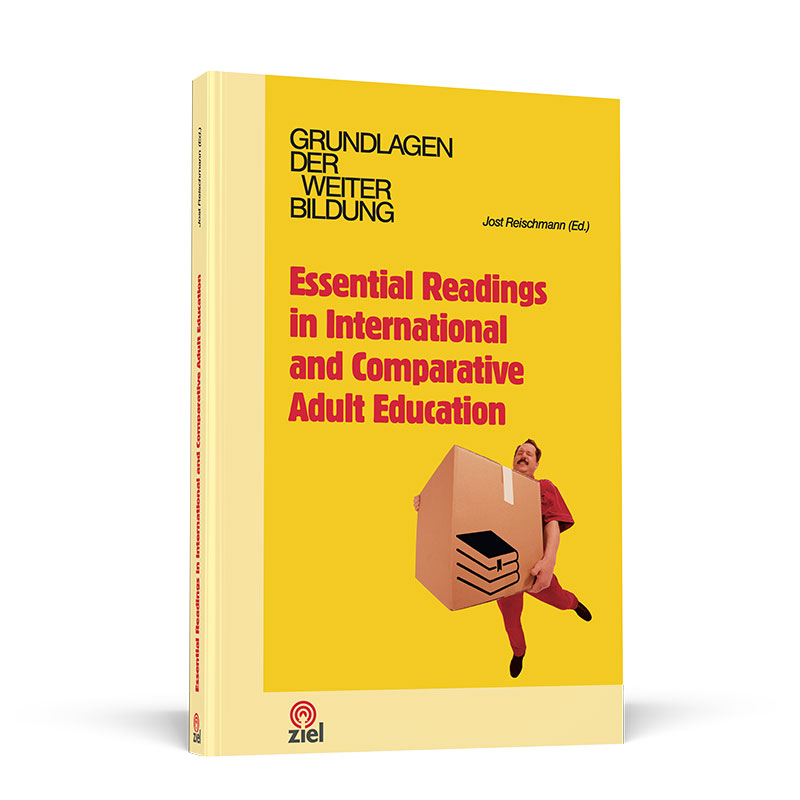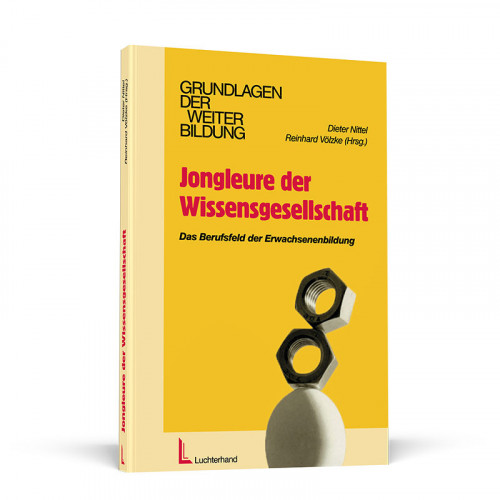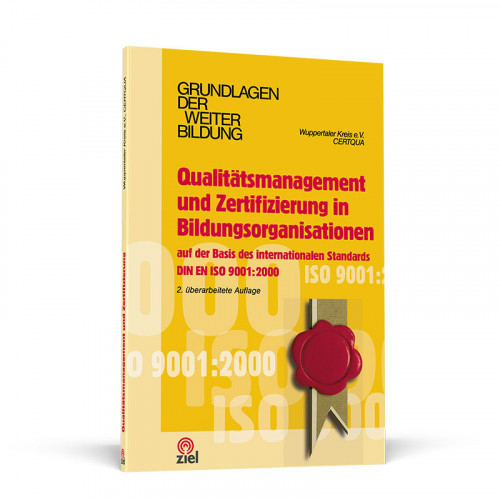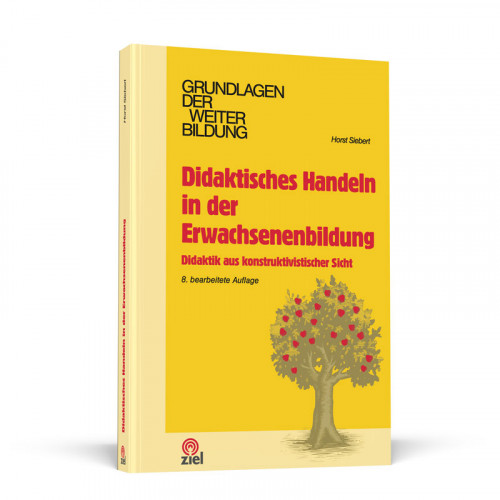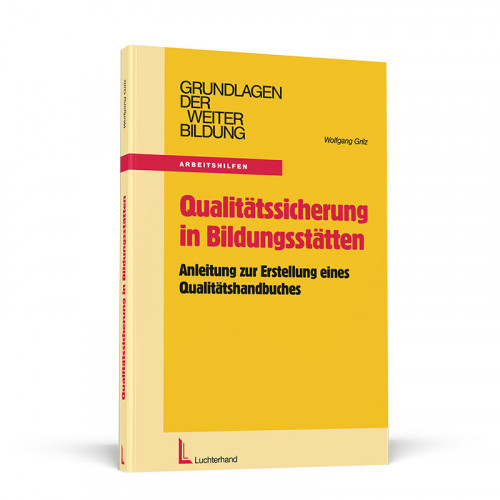Klappentext
Often in international comparative studies, it is difficult to refer to older basic texts because they are hidden in old publications, difficult to locate. This book makes a selection of such old but ‘essential’ texts available and wants to docu-ment the long history of the international/comparative perspective. ‘Standing on the shoulder of giants’ allows not only a grounded look back but hopefully also a reliable and experience-based look in the future.
The editor of this book, Jost Reischmann, Prof. em., Bamberg University, Germany, has a long history in international and comparative adult education. He presented papers on conferences around the world, from San Diego (USA) to Soul (Korea). When the International Society for Comparative Adult Education (ISCAE) was founded in 1992, he became the first president and developed this society over many years.
We hope this new book will help old-timers and new-comers to contribute to the enriching world of international comparative adult education.
Aus dem Inhalt
Tom Sork: Foreword 7
0. Preface 9
1. Jost Reischmann (2000): The Meaning of ‘international comparative’, problems and perspectives 13
2. History, Development2.1 Table: Significant Events in Comparative Adult Education 19
2.2 Michael E. Sadler (1900): How Far Can We Learn Anything of Practical Value from the Study of Foreign Systems of Education? 21
2.3 Stuart Marriott (1991): Germany and the World Association for Adult Education (1919-1946): an English perspective 26
2.4 George Z. F. Bereday (1964): The Methods of Comparative Education 38
2.5 Alexander A. Liveright, Noreen Haygood (1966): The Exeter Papers 51
2.5.1 Dusan Savicevic (1966): National Report: Yugoslavia 63
2.6 Roby Kidd (1975): Comparative Adult Education: The First Decade 71
2.7 Joachim H. Knoll (2000): Development and Fundamental Principles of International and Comparative Adult Education Research 84
3. Travelers and their reports3.1 Eduard C. Lindeman (1926) 92
3.2 Albert Mansbridge (1940) 93
3.3 Hermien van der Heide (Barry Hake) 96
3.4 Dusan Savicevic (1967) (Katarina Popovic) 99
3.5 Lore Arthur (2001) 102
4. International, Program Reports, Country Reports, Juxtaposition
4.1 Jost Reischmann: Summary ‘Council of Europe: Permanent Education’ – ‘ECLE’-project - Handbook Pöggeler - Leierman’s bibliography - Knox: Global Perspective 107
4.2 Colin Titmus (1981): Strategies for Adult Education. Practices in Western Europe 114
4.3 Peter Jarvis (1992): Perspectives on Adult Education and Training in Europe 121
4.4 Elisabeth Reichart (2017): Kyrgystan 131
5. Comparative Studies5.1 Alexander N. Charters, Ronald J. Hilton (1989): Landmarks in International Adult Education. Similarities and Dissimilarities 146
5.2 Walter Leirman (1996): Euro-Delphi: a comparative study on the future of adult education in 14 countries between 1993 and 1995. 164
5.3 Wolfgang Seitter (1994): Adult Education and Associational Life in Frankfurt am Main and Barcelona: a structural comparison 176
5.4 Regina Egetenmeyer (2012): Informal Learning of managers in a multinational company in Germany, Great Britain, and Spain: an Intercultural Comparison 188
5.5 Sharan Merriam & Ass. (2007): Non-Western Perspectives on Learning and Knowing: Broadening Our Understanding of Learning and Knowing 204
5.6 Qi Sun & Elizabeth Erichsen (2012): Bridging Adult Education between East and West 222
6. International Organizations and Institutions6.1 UNESCO (1997): The Hamburg Declaration on Adult Learning 235
6.1 Heribert Hinzen (2017): Comparing Global Documents, Recommendations, and Commitments on Adult Education and Lifelong Learning: Communalities, Similarities and Differences International Agencies 242
7. Reflections on Pitfalls and Methods7.1 Michał Bron Jr (2008): Obstacles and Pitfalls 254
7.2 Jost Reischmann (1998): World Perspectives and Landmarks in Adult Education – A Critical Re-Analysis 270
8. Lessons learned8.1 John Henschke (2008): Opportunities and Pitfalls in International Cooperation. Lessons Learned in the Cooperative Development of Lifelong Learning Strategies of a US and South African University 283
8.2 Madeleine Blais (1999): Experiencing a Dialogic Approach. Problems and Chances in a Micro-Research Project in Canada and Venezuela 297
9. Epilogue 2000-2020:
Marcie Boucouvalas, Katarina Popovic, Jost Reischmann 303
10. Observations and Perspectives:
Jost Reischmann 315
Rezension
Bernd Käpplinger
Jost Reischmann legt mit dem Sammelband eine beeindruckende Sammlung vor, die Potenzial für ein Must have hat für Menschen, die sich in internationalen Kontexten mit Erwachsenenbildung befassen. Auf mehr als 300 Seiten versammelt er zentrale Texte aus mehr als 100 Jahren. Der früheste Text ist von Michael E. Sadler von 1900 und er thematisiert die bis heute wichtige Frage, was man praktisch lernen kann, wenn man sich mit fremden Bildungssystemen befasst. Einer der jüngsten Texte ist von 2012 und in ihm werfen Qi Sun und Elizabeth Erichsen die Frage auf, wie man zwischen der westlichen und östlichen Welt Brücken schlagen kann. Zwischen diesen Polen versammelt sich ein breites, buntes Spektrum an Beiträgen. Viele Texte sind
Klassiker und der Wert des Bandes ist nicht zu unterschätzen, weil hier erstmalig in gebündelter Form diese Klassiker zusammengeführt werden. Insofern verdient der Sammelband absolut seinen Namen.
Kritisieren kann man allerdings, dass es zu viele weiße, westliche, englischsprachige Männer sind, die hier versammelt werden mit ihren Schriften. Allerdings thematisiert Reischmann selbst diesen berechtigten Kritikpunkt und seine Reaktion darauf in dem Band selbst ist auch richtig, dass dies schlichtweg ein Spiegelbild davon ist, wie international-vergleichende Weiterbildungsforschung vor Dekaden sichtbar aufgestellt war. Hier bräuchte es quasi über historische Forschung mittlerweile gesonderte Bemühungen, um z.B. wesentliche Beiträge von Frauen oder auch nicht westlichen Ländern sichtbar(er) zu machen. Dies hat sich glücklicherweise mittlerweile gewandelt und im Band wird dies u.a. dadurch sichtbar, dass bei den jüngeren Texten deutlich mehr Frauen als bei den frühen Texten auftauchen. Ein sehr interessanter Beitrag der Serbin Katarina Popovic am Ende des Bandes macht dies auch deutlich. Eine gleichgewichtige Sichtbarkeit ist allerdings auch heute weiterhin Ideal und Realität im internationalen Bereich.
Jost Reischmann steuert am Ende noch eigene Beobachtungen und Perspektiven bei, die auch kritisch reflektieren, was in dem Band versammelt ist und welche Limitierungen zu bedenken sind. Es werden auch Hinweise gegeben, was der aktuelle Stand beim internationalen Vergleich ist und wo gegebenenfalls die Reise in Zukunft hingehen kann. Hier wird auch nichts schöngeredet, sondern durchaus eine kritische Bestandsaufnahme vorgenommen. Berührend sind dabei die Beobachtungen, wie wichtig das Reisen für den internationalen Vergleich ist und welche Rolle Freundschaften im Internationalen für alle Beteiligten gespielt haben. Insofern ist der Beitrag und der ganze Band keine nüchterne, distanzierte Analyse, wie sie in manchen Publikationen heute als implizites Ideal durchschimmern mag, sondern ein engagiertes und menschliches Plädoyer für eine internationale Dimension in der Erwachsenen- und Weiterbildung, die über Wettbewerb und Ländervergleiche à la PISA deutlich hinausweisen. Es wird spannend sein zu verfolgen, wie sich in den nächsten Dekaden dieser Teilbereich der Weiterbildungsforschung und -praxis weiter entwickeln wird.
Die Leistungen der früheren Generationen sollten nicht einschüchtern, wenngleich sie durchaus beeindruckend sind, wie dieser Band aufzeigt, der sehr zur Lektüre vielen Lesenden zu empfehlen ist, wenn man nicht nur an Aktuellem interessiert ist.

